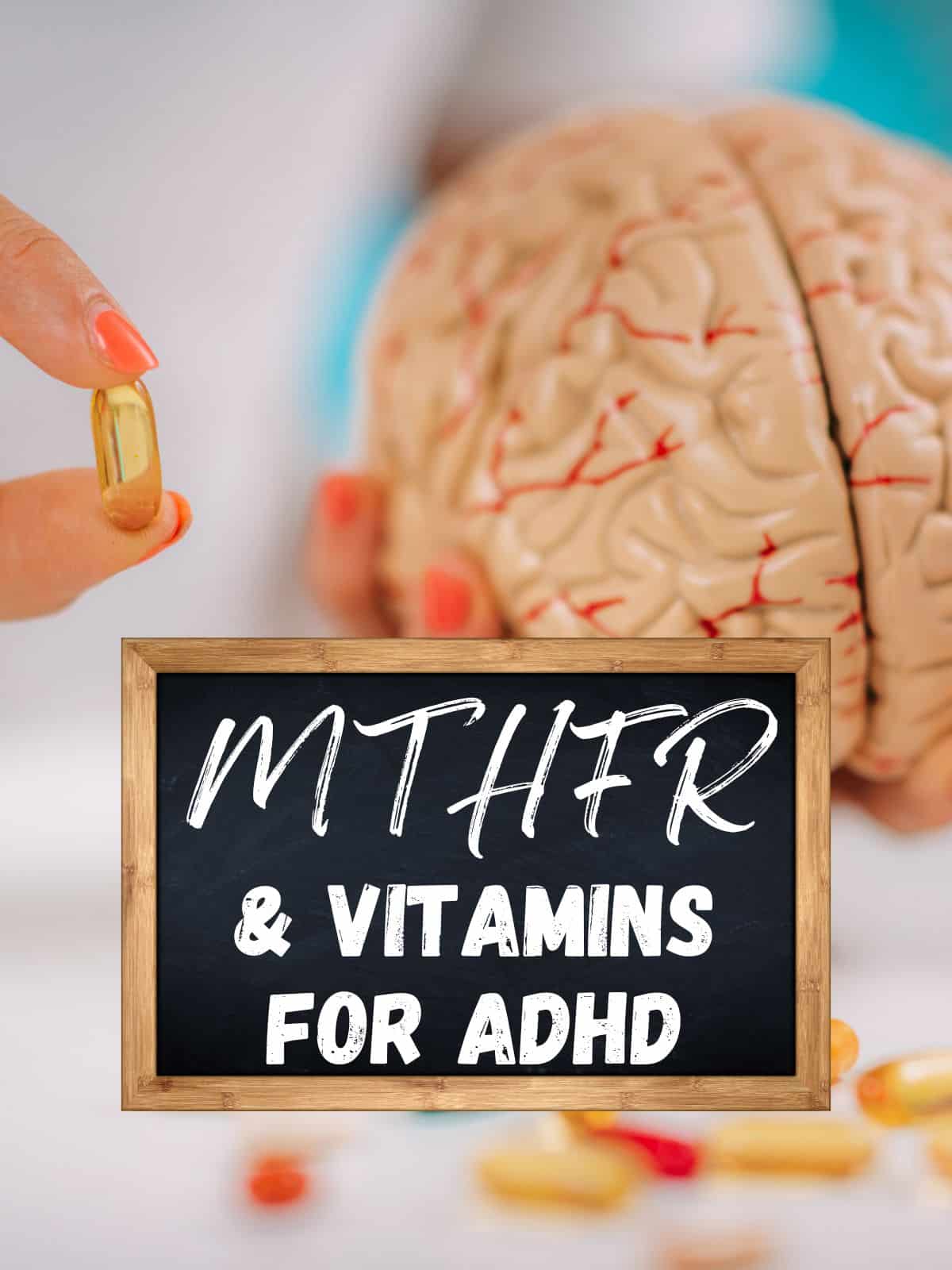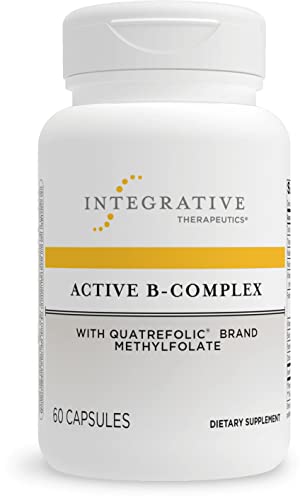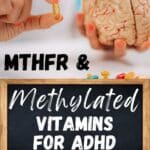The content on this website is for informational purposes only and is not meant to replace professional or medical advice. See our full disclaimer.
Today, we're going to unravel the mystery of the MTHFR gene mutation and its connection to ADHD. Sounds like something straight out of a superhero comic, right? We're going to dive into what the heck MTHFR is in the simplest terms and discover the power of methylated vitamins for ADHD.
Jump to:
MTHFR: Your Super Gene
MTHFR stands for "methylenetetrahydrofolate reductase" and is a star player in our bodies. It's a crucial enzyme that helps our bodies process amino acids, the building blocks of proteins.1MTHFR Gene Mutation
But here's the thing. Some of us have a MTHFR gene mutation, which means your body might struggle to convert folic acid into the active form of vitamin B, called Methyltetrahydrofolate (MTHF).2MTHFR gene and folate metabolism
Now, why is this a big deal? Well, MTHF is crucial for producing serotonin and dopamine, neurotransmitters that regulate mood and attention. And that's where ADHD comes into the picture.
The MTHFR-ADHD Connection
ADHD, or attention deficit hyperactivity disorder, is a neurodevelopmental disorder marked by impulsivity, attention difficulties, and sometimes hyperactivity.
Now, research shows that people with ADHD often have lower levels of dopamine.3Dopamine, serotonin, and ADHD And remember, our MTHFR is a key player in producing the stuff needed for dopamine.
So, could there be a link between the MTHFR mutation and ADHD? Some studies suggest so. They found a significant association between certain MTHFR gene variants and a higher risk of ADHD.4MTHFR gene variants and ADHD
That means that if you treat your folate levels (or your ADHD kid's), you could possibly improve ADHD symptoms like focus, task initiation, and cognitive function.
For some people with ADHD and MTHFR mutations, stimulant medications can be helpful. However, it's also possible that those with MTHFR mutations may respond differently to these medications than those without the mutation.
This is because MTHFR mutations can affect how the body metabolizes and responds to drugs.
Methylated Vitamins for ADHD
So, what can we do with all this knowledge? The good news is we can use good quality supplements, specifically methylated vitamins. These are the ready-to-use versions of B vitamins, which your body can use even if the MTHFR gene is a little off its game.
That means you can potentially improve your symptoms of ADHD by improving your folate deficiency!
One specific superhero in this team is methylfolate, a type of B vitamin. It's like a booster for your neurotransmitters, helping your body produce more dopamine and serotonin. So, using methylfolate for ADHD is like calling in the reinforcements for your neurotransmitter team!
Those with a MTHFR gene mutation may benefit more from 5-MTHF, methylfolate, or folinic acid than regular folate.5Folic Acid, Folinic Acid...(nih.gov) If you're considering taking a folate supplement, discus the best dose and type with your doctor first.
Avoid the Kryptonite: Folic Acid
Not all dietary supplements are created equal when tackling the MTHFR variant. Specifically, folic acid. You might be thinking, "Folic acid is a B vitamin. Shouldn't we want more of it?" Well, yes and no.
Folic acid is a synthetic form of folate, and remember, if you have an MTHFR mutation, your body might struggle to process it. In fact, unmetabolized folic acid can actually cause some problems.6Folic Acid and MTHFR
So, steer clear of foods unnaturally fortified with folic acid and supplements that contain it. Instead, look for those that contain folate or, better yet, methylfolate.
Your Super Diet
People with ADHD should already keep an eye on what they eat, as gut health and ADHD are tied together. We can improve our folate levels based on our diet, too.
Foods like dark green leafy vegetables (spinach, kale), legumes (lentils, chickpeas), and fruits (citrus fruits, avocados) are rich in natural folate.
However, even though these folate-rich foods contain folate in a more readily accessible form than synthetic folic acid, it still needs to be converted to methylfolate to be used by the body effectively. Given the additional challenges posed by the MTHFR mutation, leafy greens may not be enough.
This is where methylated vitamins come in. As I mentioned earlier, these vitamins are already in their active, accessible form. So, supplementing with methylated vitamins like methylfolate and methylcobalamin can give your body the nutrients it needs without relying on the MTHFR enzyme.
But remember, everyone's body is different, and what works for one might not work for another. It's always a good idea to get further support from a healthcare provider before trying supplements or making any significant changes to your diet.
Check with your doctor about Methylated vitamins and other supplements that have been shown to improve ADHD symptoms, including Magnesium (this one has really helped my focus), Zinc, and Probiotics.
Genetic Testing
If all this talk about genes and mutations makes you think about genetic testing, you're on the right track. A simple cheek swab can reveal if you have an MTHFR mutation.7Genetic Testing
If you have ADHD or are a parent of an ADHD kid, this knowledge can empower you to make more informed decisions about your or your child's health.
Genetic testing for MTHFR mutations is typically done through a simple blood test or a cheek swab, which involves collecting cells inside your cheek using a special swab. Both methods are usually quick and can be done in an outpatient setting or even at home with a testing kit.
I recommend ordering one through your doctor, like Genesight, so they can review the results with you. But there are other tests that you can order online like the one above.
The Research
Research shows that approximately 40% of Caucasians have a mutation in one or more of the genes that produce the MTHFR enzyme, with varying frequencies in other ethnic groups. Individuals with such variants face difficulties processing synthetic folic acid, leading to limited production of MTHF.8Folic Acid, Folinic Acid...(nih.gov)
Dr. Ben Lynch is a leading expert on the MTHFR gene mutation and has done extensive work to help people understand how it might affect their health. In his work, he emphasizes the role of MTHFR in the body's methylation process, which plays a big role in the body's functions, like boosting the immune system, balancing mood, and removing toxins.
According to Dr. Lynch, if the MTHFR enzyme isn't working right, it often leads to different health problems or mental health issues due to gene mutations. Or it can increase symptoms of these conditions, like ADHD.
However, just because you have an MTHFR mutation doesn't mean you'll definitely have these problems. Your risk might be higher, though, especially if you have a poor diet, are exposed to environmental toxins, or are stressed.
Dr. Lynch recommends being proactive in dealing with MTHFR mutations. This includes making changes to your diet and lifestyle, using specific supplements, and regularly checking your health.9MTHFR Mutations and Associated Conditions
In the end, remember this. MTHFR mutations and ADHD are complex problems, and there's no one-size-fits-all solution. But with knowledge and understanding, you become better equipped to manage these challenges.
References:
- 1
- 2
- 3
- 4
- 5
- 6
- 7
- 8
- 9










Tony Martin says
What is the recommended dosage of what is the dosage of Methylcobalamin for adults with ADHD?
Honestly ADHD team says
Great question! I’d recommend checking with your doctor to find the right dosage for you (see disclaimer). For me personally, I use the dosage listed on the bottle of my methylated vitamins, but everyone’s needs can be different.